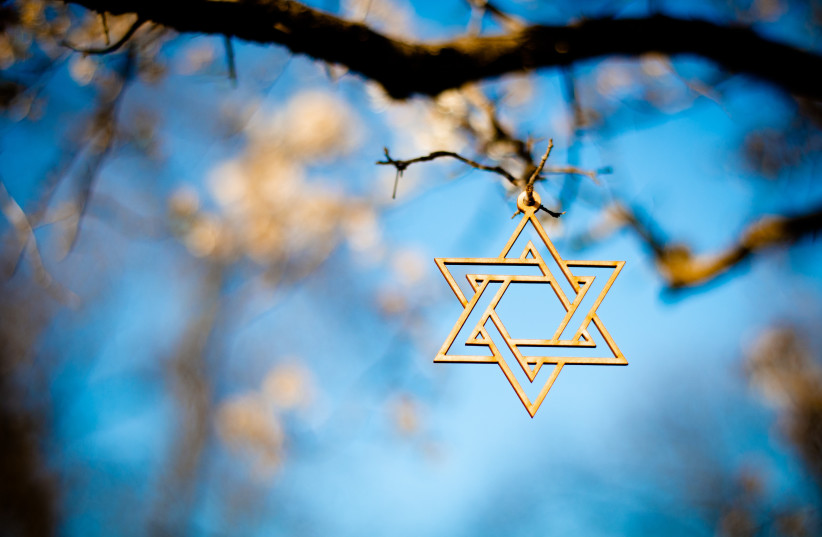What do you ladies feel when you pray to God about “who will live and who will die, who by fire and who by water?” I feel very ambivalent when saying those words on Yom Kippur and am unsure about how that prayer should be understood. – Tali, Netanya
What do you ladies feel when you pray to God about “who will live and who will die, who by fire and who by water?” I feel very ambivalent when saying those words on Yom Kippur and am unsure about how that prayer should be understood.
Tali, Netanya
Tzippi Shaked:
I was dreading the holidays because I’m unintentionally far from kids, home and mobility. After flying to New York for a family simcha, my husband and I took our first holiday in years to Vermont. What luck – I’m now one bike accident and a total hip replacement later, with no sign of being able to fly back any time soon.
Two seconds altered so much. The High Holy Day liturgy of who will live, who will die might also incorporate who’ll be injured, who’ll birth an unhealthy child, who’ll lose a mother, a husband, a leg – I was inscribed for a hip replacement.
I have a number of religious friends whose faith seemed intact until they were personally challenged. Faith is easier when you’re removed from unforeseen tragedies. I’ve asked some of these friends where their faith went, and the answers varied from “shipwrecked,” “put on pause” and “no longer relevant.”

Rosh Hashanah prayers are a stark reminder of the inconceivable, an assault on our invincibility. This year I didn’t need reminders as to what life can throw our way for I, too, feel somewhat lost in a now foreign country without a clear departure date back to the promised land. Still, I’m lucky to have family here, and I have faith for better times ahead.
May we all have a year where we remain out of the line of fire from missiles, physical woes and loss of loved ones – far away from all types of unmitigated pain. Pray that when challenged, our faith remains steadfast. May we be reminded to reach out to others in pain, with or without their own faith intact. Shana tova to us all.
Danit Shemesh:
A sniper dispassionately crouching around the corner, waiting for me to mess up; that’s how I saw God early in our ba’al teshuva days. I was chronically on red alert, feeling insecure and, simply, a bad girl. My relationship with God suffered from distance. I was always cold. This paradoxically happened only after I became religious, when fear took up residence inside me.
My fighter-pilot husband claimed that punishment is a necessary tool for order and direction. I, the artist/therapist, felt that closeness and love are paramount to wellbeing. Which of us got it right – is God a king or a father?
And can one integrate the two?
I’m still working on that. Maybe I need many more Rosh Hashanahs to become whole.
When I became sufficiently sick of this long suffering status, I sought a Rav, a teacher to change my perspective. The Rav taught me the following: Rosh Hashanah is a reminding of our perspective on God, and consequently, our reality. It is a spiritual restart, a new alignment to potential joy (a synonym for closeness with Hashem), which includes not only good news in our lives but also a bettering of our personhood. Can we go beyond our pain/pleasure point of view and see that both are necessary?
It’s a good thing that I am not the boss here; feeling that someone else has the plan minimizes doubt and angst. I’m not deluding myself for the sake of comfort, despite what Pam thinks. My mental work on Rosh Hashanah is always to remember that God has His job, and I have mine. Knowing that He loves me in the deepest sense allows me to welcome His judgment. I am no longer afraid once I integrate the dialectic. I am simply in awe. And love.
Pam Peled:
The Talmud tells of Rav Yishmael ben Elisha who entered the Holy of Holies on Yom Kippur to find God sitting there needing a blessing. The priest suggested that God’s will should allow His mercy to suppress His anger; God nods in agreement. The lesson, according to a shiur I recently attended, is that God desperately seeks love; He wants to be merciful to win His people’s adoration.
My question is: So what’s stopping Him? Why, year after year, millennium after millennium, does God get it so wrong? Why does He keep decreeing that His good people die, too often en masse; why can’t He spread peace in His Holy Land? The logic escapes me; if He’s almighty, why can’t He control His almighty anger?
Each year I like Yom Kippur less. I fast out of a sense of solidarity; my parents fasted, their parents before them and back through the ages. I like the idea that Jews everywhere are spiritually seeking together; and everyone is counting down to the first bite of warm, buttery milchike. But the older I get, the less I connect to the prayers. I know wonderful childless couples – why did God not grant them kids on his Yom Kippur lists? Was it really God who sent millions to die by fire, or gas, or bullets to the brain? Is it God who lashes out with pancreatic cancer for this one, a traffic accident for that; all decreed while the faithful victims are often at prayer?
I don’t want to believe in a God like that; it’s the opposite of comforting. I have less patience for the hysteria with every passing year.
Comments and questions: 3ladies3lattes@gmail.com www.facebook.com/3ladies3lattes
